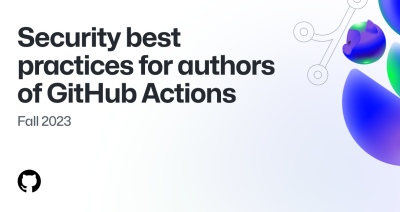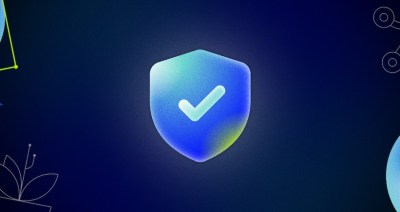
Securing our home labs: Frigate code review
This blog post describes two linked vulnerabilities found in Frigate, an AI-powered security camera manager, that could have enabled an attacker to silently gain remote code execution.

This blog post describes two linked vulnerabilities found in Frigate, an AI-powered security camera manager, that could have enabled an attacker to silently gain remote code execution.

The GitHub Security Lab examined the most popular open source software running on our home labs, with the aim of enhancing its security. Here’s what we found and what you can do to better protect your own smart home.

Improve your GitHub Action’s security posture by securing your source repository, protecting your maintainers, and making it easy to report security incidents.

In October, we experienced two incidents that resulted in degraded performance across GitHub services.

Secret scanning will now detect the following non-provider patterns: HTTP basic authentication header HTTP bearer authentication header MongoDB connection string MySQL connection string Postgres connection string OpenSSH private key PGP…

GitHub.com now remembers multiple accounts in your browser. You can find the account switcher in your profile picture context menu, letting you more easily switch between user accounts without re-entering…

Users who are not part of the mandatory 2FA program will now be added to it within 24 hours of creating their first release. In August we expanded the 2FA…

We’re excited to highlight another top contributing researcher to GitHub’s Bug Bounty Program—@Ammar Askar!

Visual Studio 🤖 ARM Support Version 1.116.0.0 of the Visual Studio extension now supports ARM. 🔒 Support for Proxies That Use Basic Authentication Version 1.116.0.0 of the Visual Studio extension…

GitHub secret scanning protects users by searching repositories for known types of secrets such as tokens and private keys. By identifying and flagging these secrets, our scans help prevent data…

GitHub secret scanning protects users by searching repositories for known types of secrets. By identifying and flagging these secrets, our scans help prevent data leaks and fraud. We have partnered…

How to get the security basics right at your organization.

Announcing changes to permissions for packages. We are restricting the refs REST API endpoint from accepting POSTs from users and apps that only have the permission to read and write…

Passkeys are a replacement for passwords when signing in, providing higher security, ease-of-use, and loss-protection. They are now generally available on GitHub.com for all users. By using a passkey you…

All GitHub.com users can now register a passkey to sign in without a password.

Users with two-factor authentication enabled can now begin the account recovery process from the password reset flow. Previously, the account password was needed to access 2FA account recovery, but passwords…

Some best practices and important defenses to prevent common attacks against GitHub Actions that are enabled by stolen personal access tokens, compromised accounts, or compromised GitHub sessions.

The administrator account (ending in _admin) of Enterprise Managed User enterprises is now required to enter sudo mode before taking sensitive actions. As with standard user accounts, the administrator must…

Learn about how we build containerized services that power microservices on the GitHub.com platform and many internal tools.

As part of the two-factor authentication requirement program on GitHub.com, the People pages of enterprises and organizations have been updated to include the 2FA requirement status of members and collaborators.…

GitHub has identified a low-volume social engineering campaign that targets the personal accounts of employees of technology firms. No GitHub or npm systems were compromised in this campaign. We’re publishing this blog post as a warning for our customers to prevent exploitation by this threat actor.
Build what’s next on GitHub, the place for anyone from anywhere to build anything.
Last chance: Save $700 on your IRL pass to Universe and join us on Oct. 28-29 in San Francisco.